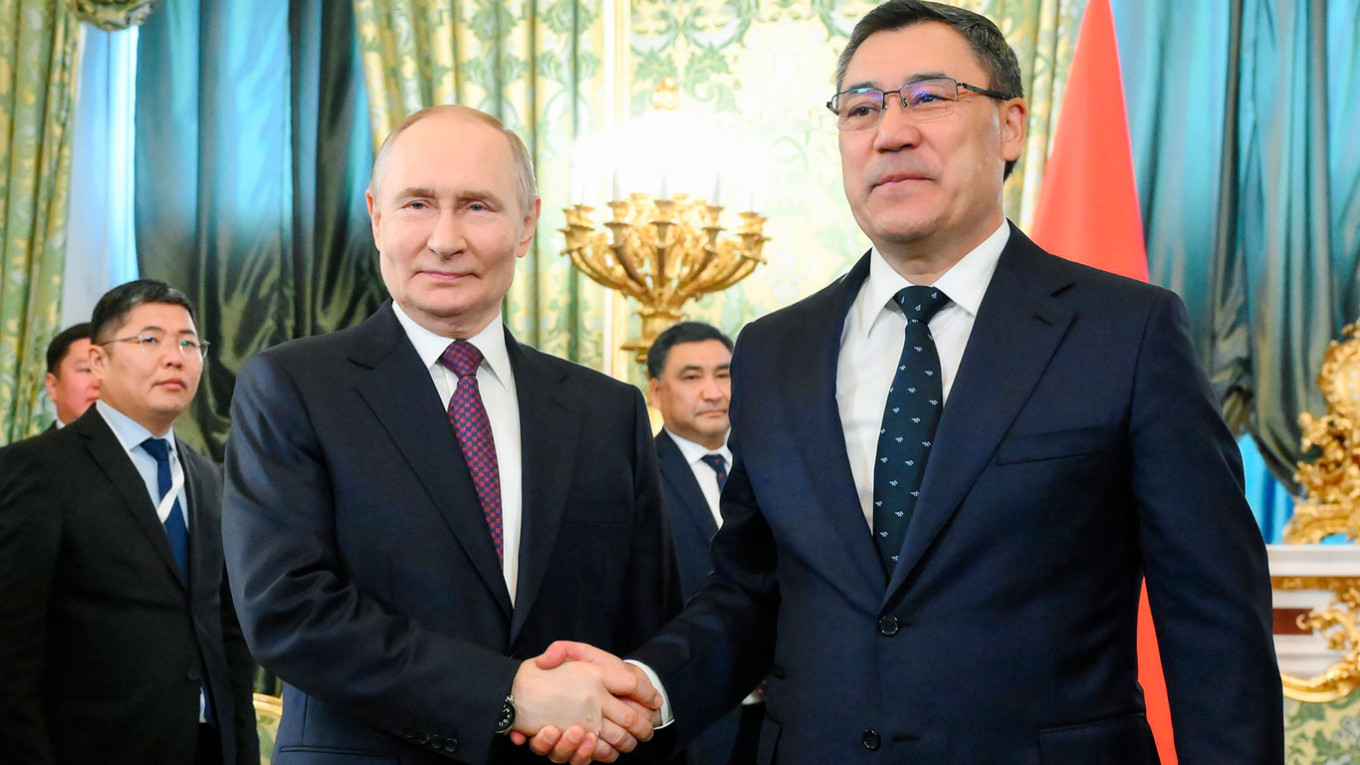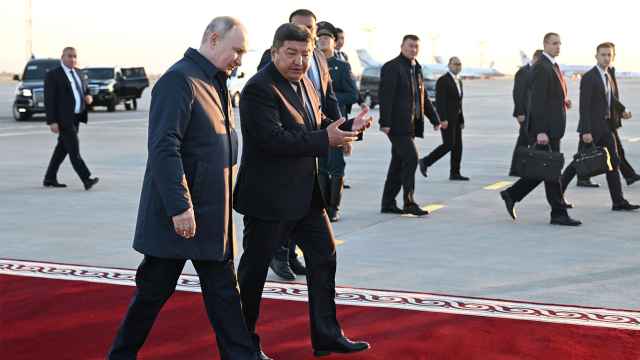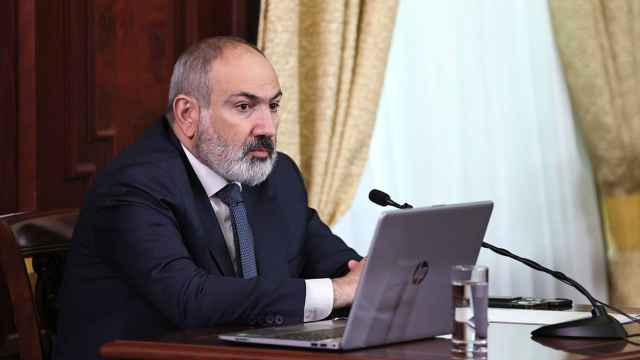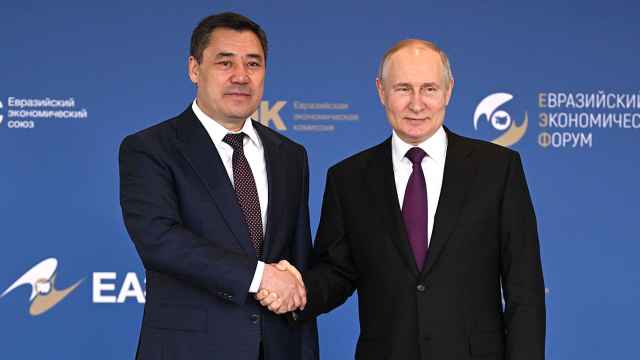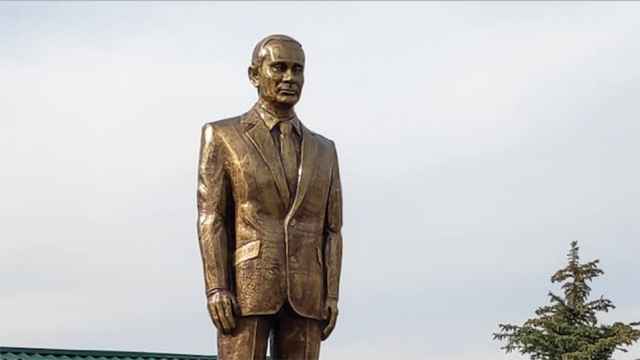President Vladimir Putin on Wednesday praised Kyrgyzstan for preserving the “special status” of the Russian language, even as the Central Asian country moves to strengthen the use of Kyrgyz in public life.
“I’d like to note and thank you for the fact that the Russian language has been given a special status in Kyrgyzstan,” Putin told Kyrgyz President Sadyr Japarov during talks at the Kremlin.
“This allows us to work more efficiently in a number of other areas, including the economy,” he said, pointing to an 11% increase in trade between the two countries in 2024.
Putin’s remarks came a week after Kyrgyzstan’s parliament passed a bill requiring public officials to be proficient in Kyrgyz and mandating that at least 60% of broadcast content on television and radio be in Kyrgyz. The bill also requires place names to be written in Kyrgyz and stipulates that Kyrgyz-language text in advertisements appear larger than Russian.
Japarov has not yet signed the bill into law.
While both Kyrgyz and Russian are official state languages in Kyrgyzstan, Russian continues to carry higher social prestige across much of Central Asia, providing access to more prestigious jobs and opportunities for labor migration to Russia.
But Russia’s invasion of Ukraine — along with Russian officials’ nationalistic rhetoric and claims to defend Russian-speaking minorities in former Soviet republics — has prompted many Central Asian countries to revive and promote their national languages.
Some Russian politicians have criticized those efforts, accusing officials in Central Asia of seeking to distance themselves from Moscow.
AFP contributed reporting.
A Message from The Moscow Times:
Dear readers,
We are facing unprecedented challenges. Russia's Prosecutor General's Office has designated The Moscow Times as an "undesirable" organization, criminalizing our work and putting our staff at risk of prosecution. This follows our earlier unjust labeling as a "foreign agent."
These actions are direct attempts to silence independent journalism in Russia. The authorities claim our work "discredits the decisions of the Russian leadership." We see things differently: we strive to provide accurate, unbiased reporting on Russia.
We, the journalists of The Moscow Times, refuse to be silenced. But to continue our work, we need your help.
Your support, no matter how small, makes a world of difference. If you can, please support us monthly starting from just $2. It's quick to set up, and every contribution makes a significant impact.
By supporting The Moscow Times, you're defending open, independent journalism in the face of repression. Thank you for standing with us.
Remind me later.


